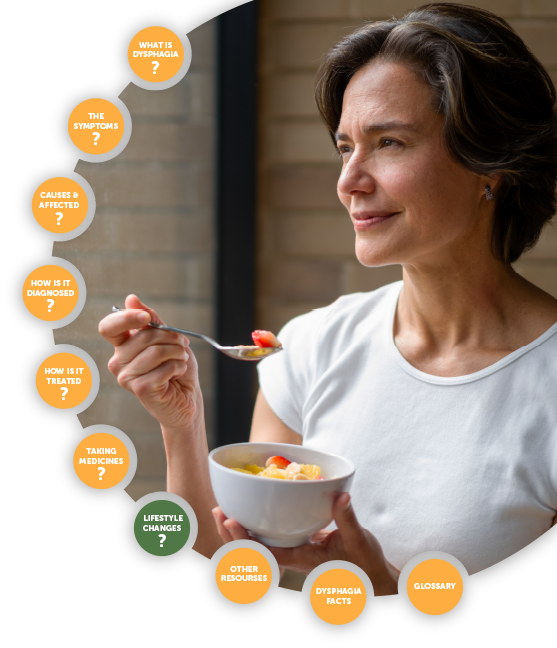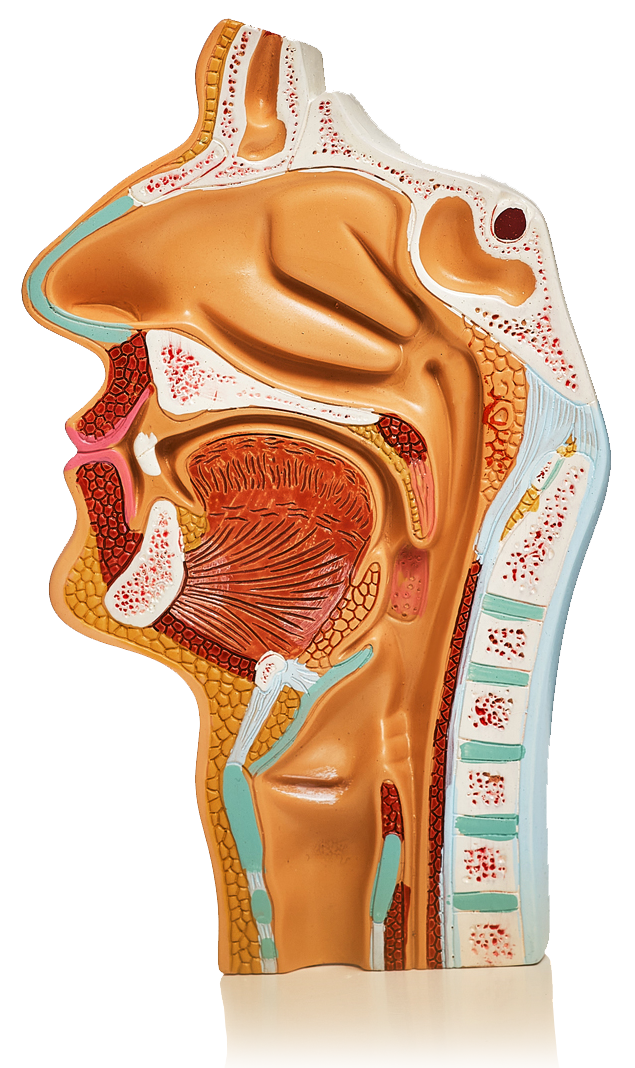
What lifestyle changes will help?
Not everyone with dysphagia needs to make the same changes to their lifestyle. It depends on the severity of the dysphagia, but it is important to focus on eating foods that are less likely to cause choking or that might ‘go down the wrong way’. These are usually foods that are softer and easy to chew and swallow.
Changing the texture of foods and the thickness of liquids is likely to be helpful. Thickened drinks and softer foods may be safer to swallow because they are easier to control in the mouth; they also move more slowly down the throat, allowing the muscles time to protect the airway.1

Easier to swallow
As a general rule, foods that are easier to swallow include well-cooked or canned fruit and vegetables, tender meats, pasta and rice, soups, yoghurt, cottage cheese, tofu, well cooked beans, eggs and foods that are moist.1
Difficult to swallow
Foods that are more difficult to swallow include dry or coarse bread, crackers, cereals, dry or tough meats, nuts and seeds, raw fruits and vegetables, popcorn, crisps and foods that are very chewy.1
A speech and language therapist (SLT) or dietician should advise on what level of changes need to be introduced and may refer to the International Dysphagia Diet Standardisation Initiative (IDDSI) Framework which standardises the texture of foods and thickness of liquids that may be appropriate for patients with different levels of dysphagia. Commercial products to thicken liquids are available from pharmacies but it is important to adhere strictly to advice given by the SLT.2
People with dysphagia may benefit from doing different swallowing exercises. This can help improve swallowing muscle strength and coordination, improving the symptoms of dysphagia.2

References
- GI Society. Canadian Society of Intestinal Research.
Available at: https://badgut.org/information-centre/a-z-digestive-topics/dysphagia/
Accessed: Dec 2024. - Your Complete Guide to Dysphagia.
Available at: https://www.lancashire.gov.uk/media/916219/complete-guide-to-dysphagia.pdf
Accessed: Dec 2024.

